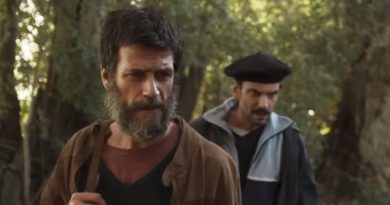The Little Mermaid (2023) Review
Is the live-action remake of The Little Mermaid as bad as it looks after all the mediocre trailers and dull-looking posters? That’s the question I’ve been asking since Disney released its first teaser trailer last year. That trailer, of course, didn’t bode well for many fans of the 1989 animated classic, resulting in millions of dislikes and harsh comments on its YouTube channel.
But the most controversial factor is the unlikely casting of Chloe x Halle singer-actress Halle Bailey as Ariel. The iconic titular character was traditionally white in the animated version and even in Hans Christian Andersen’s 1837 fairy-tale classic. Which brings me to another question: Why swap the race of such a beloved mermaid character that has been ingrained in our subconscious minds? No wonder Halle Bailey’s appearance has been widely condemned as #NotMyAriel and personally, I don’t blame the netizens inciting hatred and blasphemy.
And so, I went in with low expectations and it was surprisingly not as bad as I thought it would be. The Little Mermaid has its few shortcomings but we’ll get to that later. Director Rob Marshall reunited with screenwriter David Magee, where they previously worked together in 2018’s Mary Poppins Returns made a smart move keeping the core essence of the storyline intact that we come to know and love about The Little Mermaid: Ariel (Bailey) is a liberal-minded titular mermaid, who insists on exploring the human world above the surface, despite the objection of her overprotective underwater king-father Triton (Javier Bardem). So, his father sends over his loyal advisor Sebastian the crab (voiced by Daveed Diggs) to keep an eye on Ariel and reports back to him in case of anything goes wrong.

After Ariel finally gets her chance to witness the sight of humans above the sea, this is where she lays her eyes on the dashing prince Eric (Jonah Hauer-King) and subsequently falls in love with him after saving his life from a shipwreck. The live-action remake also introduces the sea witch Ursula (Melissa McCarthy), who manages to convince the lovestruck Ariel to take her deal: She will help to transform Ariel’s mermaid tail into human legs in exchange for her singing voice, allowing her to travel the human world freely without raising suspicion. Ariel is also given the opportunity to become human for the rest of her life if she successfully gets a kiss from Eric within three days. However, if she fails, she will turn back into her original mermaid form and bounded to Ursula forever.
The Little Mermaid features a longer runtime at 135 minutes, leaving more room not only for additional stories but also includes three new songs. For instance, the 1989 animated film depicts Prince Eric’s character as nothing more than a garden-variety Disney prince. But Magee’s screenplay gives Jonah Hauer-King’s role of Prince Eric a personality that reflects Ariel’s way of independent thinking. Both of them are longing for freedom to achieve the things they want the most. We get to see more of Prince Eric’s predicament between fulfilling his dream and dealing with his conservative queen-mother Selina played by Noma Dumezweni.
Alan Menken and Lin-Manuel Miranda, who created the new songs for the live-action remake are a mixed bag but I personally enjoy Awkwafina’s Scuttle and Daveed Diggs’ Sebastian’s catchy rap of “The Scuttlebutt” the most. The movie’s decision of swapping Scuttle the male seagull previously voiced by the late Buddy Hackett in favour of a female northern gannet may have drawn a lot of flak from many fans of the 1989 animated classic. I was initially sceptical about the change but Awkwafina’s mix of quirky and deadpan performance as Scuttle brings a surprisingly worthwhile comic relief. It also helps that she and Daveed Diggs’ Sebastian shared hilarious mismatched partners-like chemistry, particularly during the second half of the movie.

As for Halle Bailey’s new take on Ariel, she gives her all with her incredible vocal range (the part where she sings “Part of Your World” immediately comes to mind) while bringing a wonderful, wide-eyed innocence charm to her role. Not to mention she shared a lovely on-screen chemistry with Jonah Hauer-King’s Prince Eric. Melissa McCarthy, in the meantime, gives a scene-stealing performance each time she’s on the screen playing the scheming Ursula while Daveed Diggs’ Caribbean accent as Sebastian has a few moments of his own and that includes his infectious “Under the Sea” song montage.
Jacob Tremblay, who voiced Flounder, may have successfully captured the character’s nervous personality but the same can’t be said for the oddly too-realistic-for-its-own-good CGI design of the tropical fish. Speaking of CGI, the special effects are shoddy in some underwater scenes and given the huge budget granted for this live-action remake, I was expecting a lot more in the technical department.
But Marshall has an eye for visceral and suspenseful moments of perils in certain scenes (the hurricane set piece being one of them) with the help of Alan Menken’s engrossing score. Enlisting Javier Bardem to play King Triton is an inspired choice but too bad the movie largely undermined his character. And as much as Magee’s screenplay does some justice in expanding the storyline, I can’t help but notice its erratic pacing issue, causing the movie drags in places.
Frankly, the 1989 animated classic remains the best feature-length rendition of The Little Mermaid story but that doesn’t mean the live-action remake is a disaster. Far from it and at least a better-than-expected movie than most of Disney’s live-action remakes that were released over the past few years such as Beauty and the Beast, Dumbo and Aladdin.





